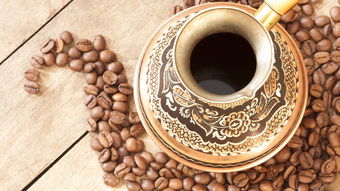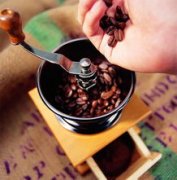Basic knowledge of Coffee what nutrients are contained in coffee

Caffeine
Caffeine is the most eye-catching of all the ingredients of coffee. It is a kind of phytoflavin (animal muscle ingredient). Its properties are the same as theobromine in cocoa, green tea contains the same theophylline, and the percentage of reduction after baking is very small. Caffeine has a wide range of effects. It can accelerate the metabolism of the human body and keep people clear-headed and sensitive. The refreshing effect of coffee is very popular. Some people will lose sleep after drinking coffee at night, while others will be nervous and overexcited if they drink too much coffee, but many people will not be affected at all. Once we understand the body's response to caffeine, we can use it to meet our needs. Drinking a cup of delicious coffee before the exam or long-distance driving will certainly reduce fatigue.
Tannic acid
After extraction, tannic acid will turn into a yellowish powder, which can easily blend into water, and after boiling, it will decompose and produce pyrosylic acid, which will make the coffee taste worse, and if it is brewed and left for several hours, the color of the coffee will become thicker than when it was just brewed, and it is also less tasty, so there is the saying that "it is best to drink it as soon as possible."
Fat
The fat contained in coffee plays a very important role in flavor. After analysis, it is found that there are many kinds of fat in coffee, the most important of which are acidic fat and volatile fat. Acidic fat means that the acidic strength of fat varies with different types of coffee, and volatile fat is the main source of coffee aroma. Once the fat in roasted coffee beans comes into contact with the air, it will change chemically and the taste will get worse.
Protein
The main source of calorie is protein, and like dripping coffee, most of the protein will not dissolve, so no matter how much coffee you drink, the nutrition you get is limited, which is why coffee will become a sacred food for dieters.
Sugar
Without sugar, you will not only feel the bitterness of caffeine and the sour taste of tannin, but also feel sweet, which is caused by the sugar contained in the coffee itself. After baking, most of the sugar will be converted to caramel, bringing a unique brown to the coffee.
Mineral substance
There are lime, iron, sulfur, sodium carbonate, phosphorus, chlorine, silicon and so on, because the proportion of very little affect the flavor of coffee is not big, combined to bring only a little astringent taste. Crude fiber: raw bean fiber will be carbonized after baking, this carbon and sugar caramelization combine with each other to form the tone of coffee, but the fiber turned into powder will have a considerable impact on the flavor of coffee. Therefore, we do not encourage the purchase of powdered coffee beans, because we are unable to taste the flavor of the coffee.
Important Notice :
前街咖啡 FrontStreet Coffee has moved to new addredd:
FrontStreet Coffee Address: 315,Donghua East Road,GuangZhou
Tel:020 38364473
- Prev

Several common bad kinds of coffee beans
Fermented coffee beans that fall from the soil before harvest. The moldy smell will have a great impact on the taste of coffee. Dead beans, also known as unripe beans, or affected by climatic factors, the development is not perfect. Fried spots will be produced after baking, making the coffee have a green and astringent taste. Black beans fermented beans, coffee beans that have rotted and blackened. Because it is black, it can be distinguished from normal coffee beans at a glance.
- Next

Five steps to make good coffee by making your own coffee
First prepare the necessary utensils: a small hand coffee grinder, coffee filter paper, coffee funnel, cup, so that you can make a simple and convenient hand-made coffee. 1. Grind the coffee beans with a mill (the finest grinding). If there is a shredder at home or a soymilk machine with crushing function can also be used, but the effect is not very ideal, the particles are relatively coarse. If these
Related
- Beginners will see the "Coffee pull flower" guide!
- What is the difference between ice blog purified milk and ordinary milk coffee?
- Why is the Philippines the largest producer of crops in Liberia?
- For coffee extraction, should the fine powder be retained?
- How does extracted espresso fill pressed powder? How much strength does it take to press the powder?
- How to make jasmine cold extract coffee? Is the jasmine + latte good?
- Will this little toy really make the coffee taste better? How does Lily Drip affect coffee extraction?
- Will the action of slapping the filter cup also affect coffee extraction?
- What's the difference between powder-to-water ratio and powder-to-liquid ratio?
- What is the Ethiopian local species? What does it have to do with Heirloom native species?

